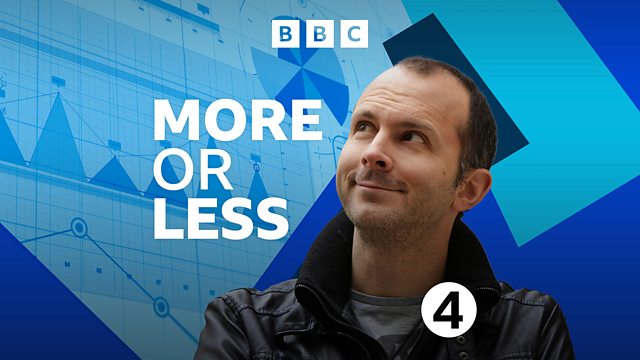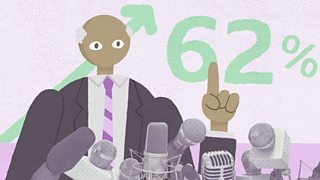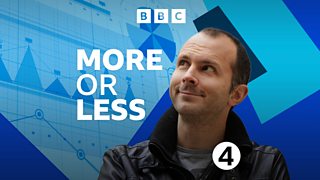
Quants Fortune - Dating By Numbers - Prize Winner
Tim Harford wonder whether the financial mathematicians known as "quants" are to blame for the credit squeeze?
Quants Fortune
Earlier in the series we talked to some "quants" (quantitative analysts)- the new breed of mathematicians making millions in banking and hedge funds. We loved the idea that the top number crunchers can now make as much money as a professional footballer or a pop star. But listener Gordon Petherbridge thought we were a little too uncritical of the quants:
"...the vast sums they acquire (as opposed to earn) are ultimately reliant on the exploitation of Joe Public and when, as inevitably they do, the edifices they construct implode, it's not the geeks who pick up the tab."
Read more about quantitative analysts
Our first report about "quants"
So are the quants exploiting the rest of us?
And are they in any way responsible for the current credit squeeze?
We spoke to Professor William Perraudin of the Tanaka Business School at Imperial College London and to Paul Wilmott, founder of the popular quant website wilmott.com.
Dating By Numbers
Algorithms and computing power are making human expertise increasingly redundant - and rightly so, according to Professor Ian Ayres.
His new book Supercrunchers: How Anything Can Be Predicted, is full of examples of human judgement losing out to statistical analysis. He describes how the so-called supercrunchers can predict with greater accuracy than experts which films will be blockbusters, which wine harvests will be vintage years, which prisoners are most likely to re-offend and which dating couples have the most potential for wedded bliss.
The last of these examples gave our reporter Ruth Alexander an idea.
Can data-based decision making and regression equations help Ruth find love?
Some might pin their hopes on a chance encounter or eyes meeting across a crowded room. Ruth decided to try a more evidence-based approach by signing-up to a dating service that claims its secret algorithms can find customers the perfect match. Will she find true love?
Prize Winner
Alex Smith, a 20-year-old student at Birmingham University has just won a $25,000 prize for being the first person in the world to solve a problem which has puzzled mathematicians for over 50 years.
Read more about the mathematical prize
In a 50-page proof Alex has shown that the two, three Turing Machine - a very simple computer - can solve any problem that a super computer can solve.
Presenter Tim Harford spoke to Alex about his achievement and Helen Joyce, former editor of Plus magazine explains the significance of Alex's achievement.
Last on
Broadcast
- Mon 26 Nov 2007 16:30Βι¶ΉΤΌΕΔ Radio 4
Just how reliable is our intuition? Find out with The Open University
OU Connect: Put your brain to the test with our new mind-bending probability problems!


